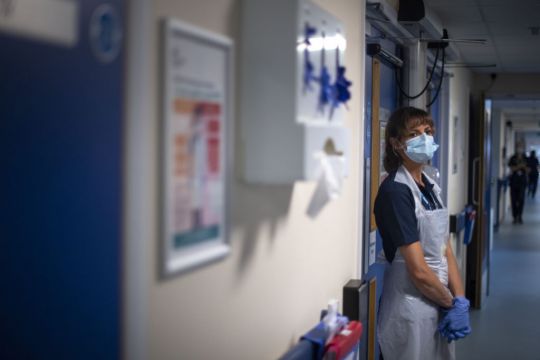The number of deaths that occur as a result of increased hospital waiting lists due to the Covid-19 pandemic must be counted, according to the Irish Patients’ Association (IPA).
The patient advocacy group has forecast that even if a “modest 0.5 per cent” of those waiting for over 12 months to access care die due to a delayed diagnosis or deteriorating condition, this will equate to some 1,250 deaths.
There are more than 800,000 people currently on waiting lists for hospital treatments and appointments, according to the National Treatment Purchase Fund (NTPF). This includes over 261,000 people waiting over a year for a consultant outpatient appointment.
That’s a pretty frightening number
“The concern we have is that some patients are waiting for so long for access to healthcare, they deteriorate and indeed can die,” Stephen McMahon, director of the IPA told Breakingnews.ie.
“The numbers [on waiting lists] are so large, we only need a very small percentage of those to actually end as a fatality or as a permanent disability as a result of their condition, to give us very large numbers,” he added.
“We have almost 800,000 people on waiting lists — if you only have one [death] per 1,000, that’s 800 people.
“I don’t think it’s unreasonable to even look at the figures of one per cent, or one per 1,000, or indeed maybe two per 1,000. When you look at it in that sense, that’s a pretty frightening number.”
Wallpaper peeling
Mr McMahon stressed that the Covid-19 pandemic prompting the shutdown of elective surgeries and outpatient appointments should not be used as a “whipping boy” for waiting list numbers.
“The day before our first case of Covid-19 on the 29th of February last year, our healthcare service was already stretched and under enormous pressure... Our health service was in a chronic state, health-wise itself,” he said.
“Covid has sort of put wallpaper over it, and as we get more people vaccinated and as Covid becomes part of the normal health demands... that wallpaper is going to peel off.
“We still have the same problems — staffing, retirement of GPs, I could go on and on and on.”
We want the same managerial approach to dealing with non-Covid care as we did with Covid
The IPA director said the organisation believes a Nphet-style committee is needed to oversee non-Covid care as the State begins to exit the pandemic.
Weekly waiting lists should be published showing new appointment dates and performance against the same, Mr McMahon said.
In the meantime, Nphet should include the number of patients whose operations have been cancelled as a result of Covid-19 figures in their updates.
“That is as important to deal with as Covid. We want the same managerial approach to dealing with non-Covid care as we did with Covid... I don’t think there’s a sense that that is the way it’s being looked at,” he said.
Impact tracking
Mr McMahon said there was little tracking of the wider impact of waiting list numbers within the health service.
“[Patients are] waiting so long, they become an emergency in the middle of the night and they have to go in through ED [emergency department],” he said.
“But nobody ever asks them are you on a waiting list, to actually be able to manage to say ‘we have had 100 admissions today and 10 of them have been people on waiting lists’.”
In response to the IPA’s forecast of mortality associated with hospital waiting lists, the Health Service Executive (HSE) did not provide any alternative figures or projections.
In a statement, the HSE said: “2020 saw a significant reduction in planned scheduled care activity volumes across acute hospital services including outpatients, inpatient and day case procedures due to the impact of Covid-19.
“In the latter part of 2020, as services adapted to the new workflows and processes associated with providing care within a Covid environment, patient volumes began to return to previous levels. In late 2020 outpatient numbers were more aligned with 2019 volumes and significantly supported by virtual engagements.”
The HSE and the NTPF are... mobilising new arrangements with the private hospitals

From January 2021, the HSE said care activities had once again focused on urgent and time critical care in response to the surge in Covid-19 related care.
“The HSE and the NTPF are continuing to access additional services and are mobilising new arrangements with the private hospitals,” the statement continued.
“The HSE continues to use Citywest as a facility for scheduled patient activities, building on the services that were provided in 2020 where 2,247 patients were seen.
“Also, as part of the 2021 HSE Access to Care Plan, hospital groups have identified targeted plans to expand access scheduled care services nationally.”







